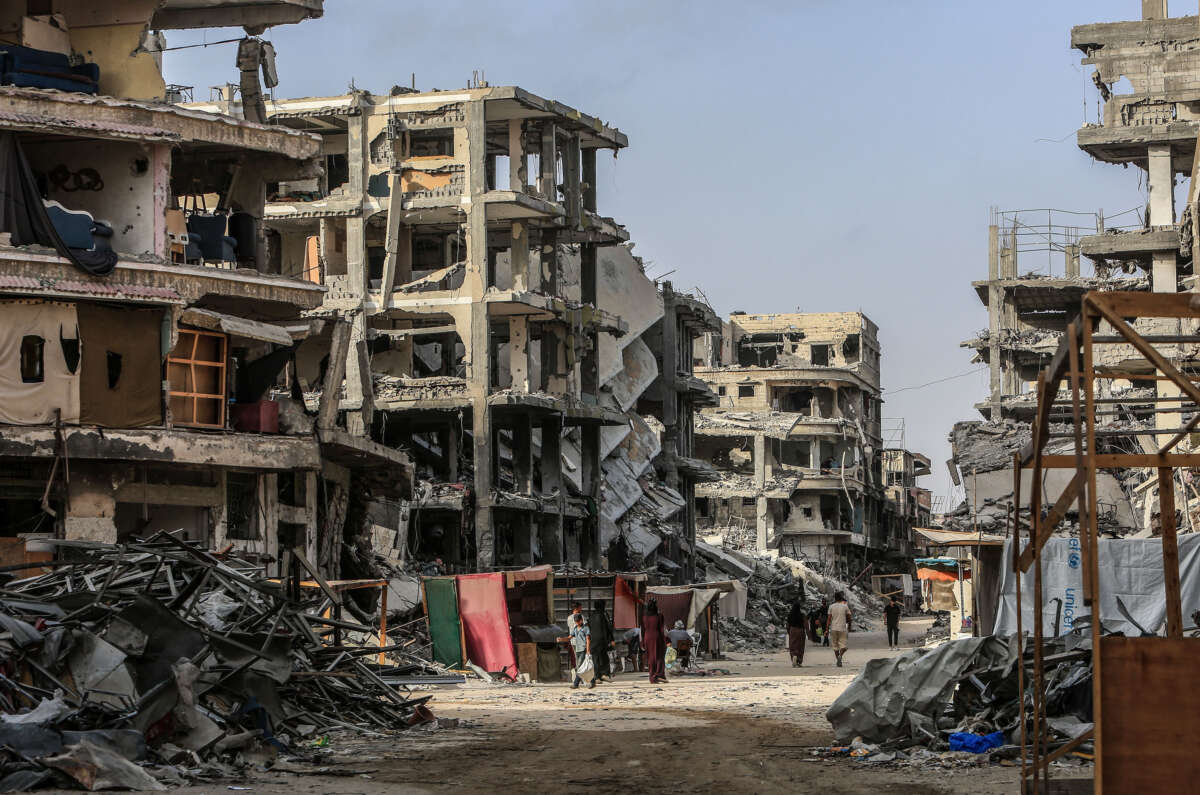Support justice-driven, accurate and transparent news — make a quick donation to Truthout today!
The UN is estimating that the population of Gaza has decreased by nearly 200,000 people in just the last nine months amid Israel’s siege — a number reflective of the speed and brutality of Israel’s genocide and ethnic cleansing of Palestinians from their land.
Prior to Israel’s current assault, Palestinian and humanitarian officials had projected that there was a population of 2.3 million people in Gaza. Now, the UN estimates that there are 2.1 million people in Gaza.
The sharp decline comes in part from 110,000 Palestinians who have fled Gaza through Egypt, either through having a foreign passport, paying exorbitant fees, urgent medical evacuation, or otherwise — and there are tens of thousands more Palestinians awaiting a medical evacuation as Israel has been blocking the vast majority of them from leaving even after having destroyed Gaza’s medical system.
The rest of the decline comes from Palestinian officials’ estimates of the death toll, currently over 38,000. This death toll is likely an undercount, as officials are unable to tally deaths of those missing under the rubble and deaths due to causes like starvation that are happening outside of medical facilities.
“Beyond these numbers, there are people, men, women, boys and girls, doctors, students, cooks, artists, journalists, teachers, moms, dads, and people that have fears and grievances. And they had, probably, dreams and hopes, less and less I fear today unfortunately,” said the UN head of humanitarian affairs for Palestine, Andrea De Domenico, in a press briefing on Wednesday.
The entire population is in dire need of humanitarian assistance, the UN says, especially after Israel intensified its near-total aid blockade amid its Rafah invasion in May.
Humanitarian officials have warned that aid distribution has become virtually impossible as Israel not only blocks aid from entering, but also obstructs aid convoys as they travel around the region and relentlessly target aid workers. It has become so dire that the UN has reportedly warned that it will have to suspend operations in Gaza if Israeli forces don’t take steps to stop killing aid workers.
The UN also recently raised its estimate of the number of Palestinians who Israel has forcibly displaced since October, from 1.7 million to 1.9 million. This amounts to roughly 9 in 10 people in Gaza, many of whom have been displaced multiple times.
“People, in the last nine months, have been moved around like pawns in a board game — forced from one location to the next, to the next [and] to the next, irrespective of our ability of support them and irrespective of the availability of services wherever they land,” said De Domenico.
The rise in the already large proportion of displaced people was primarily due to Israel’s evacuations of Rafah, which was for months considered the last safe place in Gaza, even as Israeli forces bombed and raided the area.
Israeli forces ordered yet more evacuations this week, this time forcing roughly 330,000 Palestinians to flee from Khan Yunis and northern Gaza City amid intense violence and Israeli tanks moving into the neighborhoods.
Media that fights fascism
Truthout is funded almost entirely by readers — that’s why we can speak truth to power and cut against the mainstream narrative. But independent journalists at Truthout face mounting political repression under Trump.
We rely on your support to survive McCarthyist censorship. Please make a tax-deductible one-time or monthly donation.
